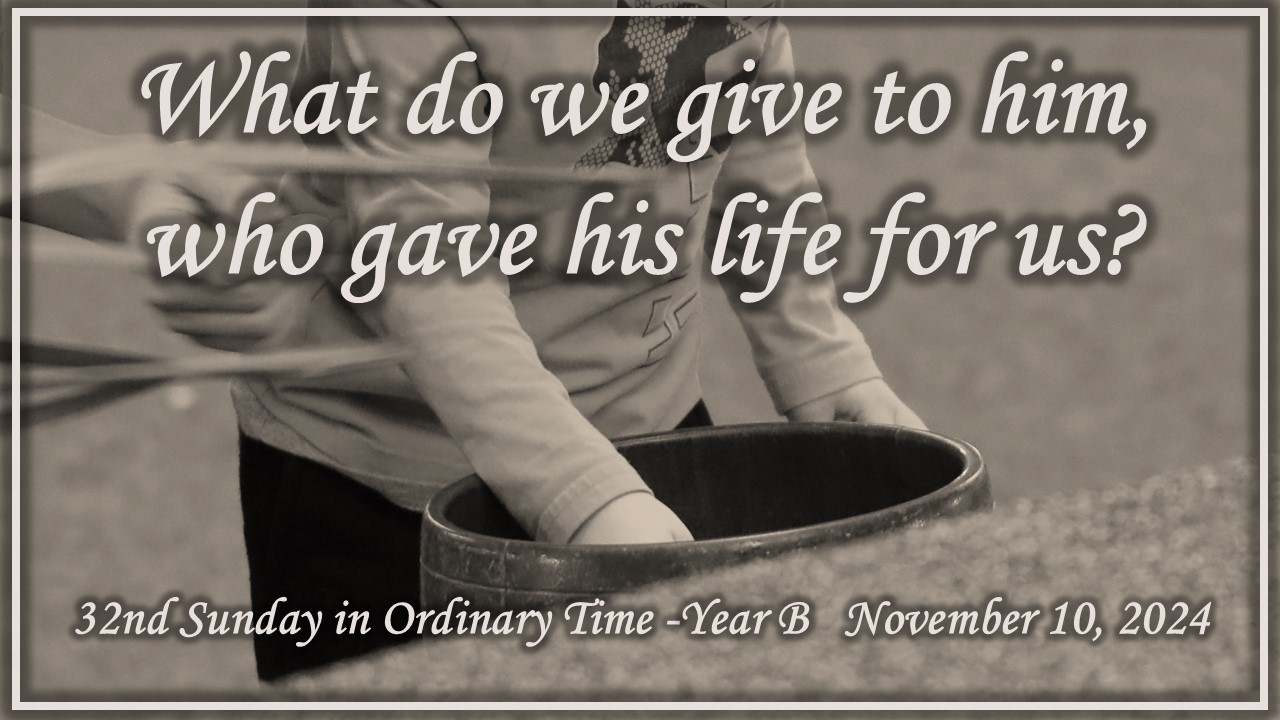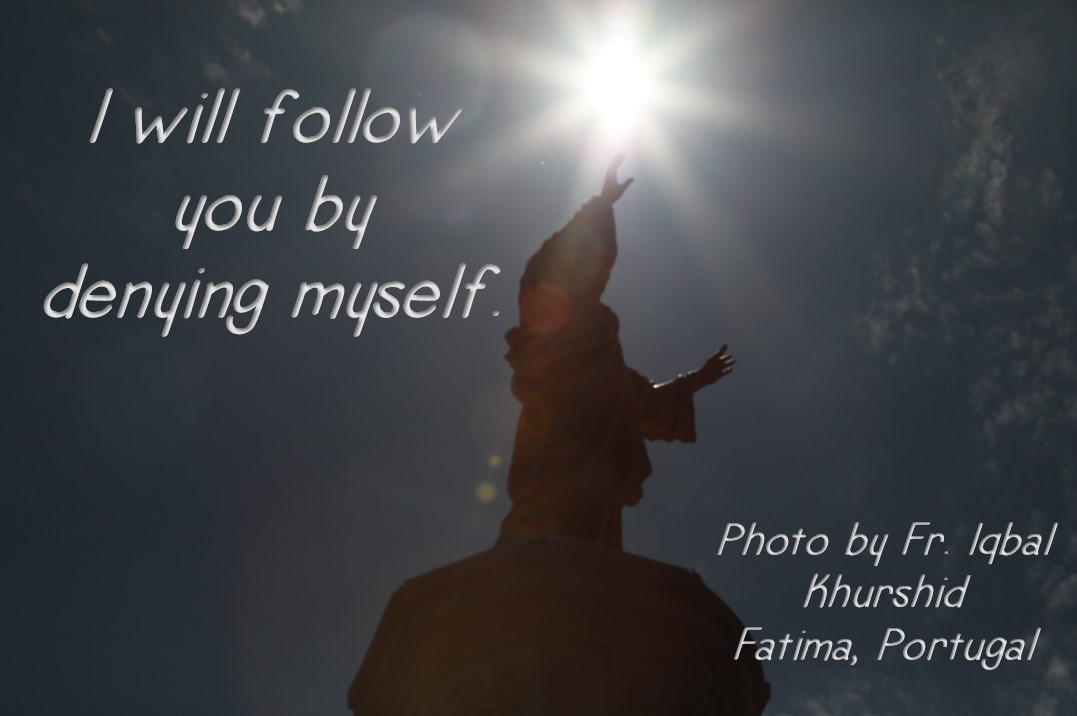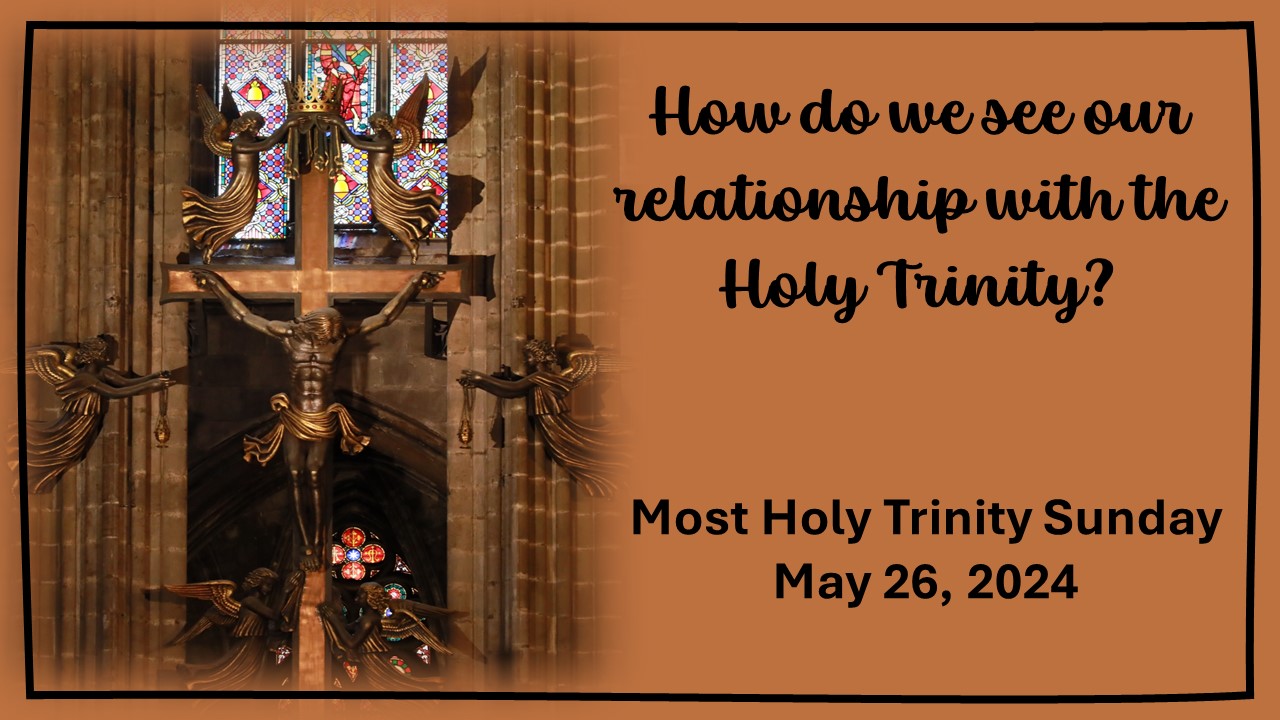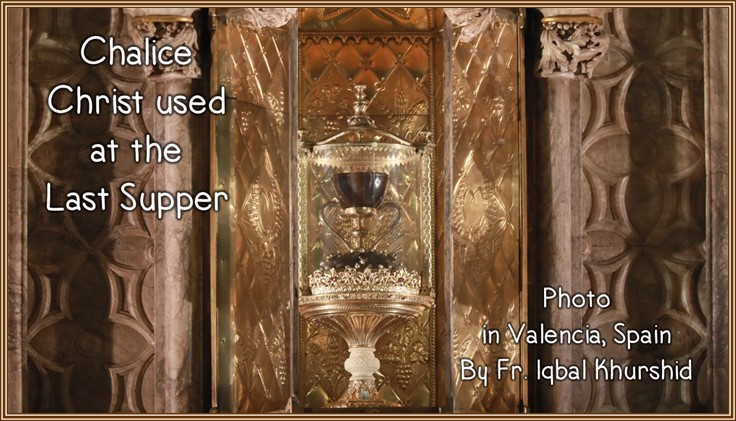
32ND SUNDAY IN ORDINARY TIME YEAR B ~ November 10, 2024
WHAT DO WE GIVE TO HIM?
The last few Sundays we have been introduced to faith filled questions to reflect upon to deepen our relationship with the Lord. The following are the questions for our reflection:
- “Is it lawful for a man to divorce his wife?” “What did Moses command you?” (27th Sunday)
- “Good Teacher, what must I do to inherit eternal life?” “Why do you call me good?” “Then who can be saved?” (28th Sunday).
- Are you to able to drink the cup that I drink, or be baptized with the baptism that I am baptized with?” (29th Sunday).
- “What do you want me to do for you?” (30th Sunday).
- “Which commandment is the first of all?” (31st Sunday).
As we begin the month of November, it does leave two questions for us to ponder and reflect upon: Is death the end of everything? What should we do about people who have gone to the Lord before us? These questions are always disturbing because no one wants to die, nor does anyone want to see someone dying and leaving them alone. But we must remember as Christian death is not the end of our life but transition from one place to another place and those who have gone to the Lord, they have left for us an example of true sharing of their lives and faith. True sharing involves love, faith, and sacrifice. These elements make the sharing or giving selfless and priceless and those who do, will always be remembered as St. Maximilian Kolbe.
During the Second World War, Polish Priest Maximilian Kolbe was arrested by the German Gestapo for hiding Jews and Polish refugees from the Nazis. When three prisoners disappeared from the Auschwitz concentration camp, the deputy camp commander issued orders to pick ten men to be starved to death in order to deter further escape attempts. One of these ten, Franciszek Gajowniczek, began to cry out, “My wife! My children! I will never see them again!” At this point, Kolbe stepped forward, removed his cap, and said, “I am a Catholic Priest. Let me take his place. I am old. He has a wife and children.” Amazingly, the commander allowed the request.
In the starvation cell, he celebrated Mass each day and sang hymns with his fellow prisoners. After two weeks of dehydration and starvation, only Kolbe remained alive. Because the cell was needed for other prisoners, he was given a lethal injection. Those present say he raised his left arm and calmly waited for the injection. That’s an example of true sharing which is true identity of our Christian living. St. James in his letter reminds everyone look after their actions: “But be doers of the word, and not merely hearers who deceive themselves. For if any are hearers of the word and not doers, they are like those who look at themselves in a mirror; for they look at themselves and, on going away, immediately forget what they were like. But those who look into the perfect law, the law of liberty, and persevere, being not hearers who forget but doers who act—they will be blessed in their doing” (1:22-25). I always say our dear and near ones who have gone back to the Lord, have given us so much to cherish and learn from their lives the true example of Christian sharing or giving. The stories of their lives are written in such a way that we cherish their memories and wisdom. Their lives were living examples of true faith and sharing that we admire their presence in our lives. True sharing happens not only with faith but action as well.
St. James is right to say “What good is it, my brothers and sisters, if you say you have faith but do not have works? Can faith save you? If a brother or sister is naked and lacks daily food, and one of you says to them, “Go in peace; keep warm and eat your fill,” and yet you do not supply their bodily needs, what is the good of that? So, faith by itself, if it has no work, is dead. But someone will say, “You have faith, and I have works.” Show me your faith apart from your work, and I, by my work will show you, my faith. You believe that God is one; you do well. Even the demons believe—and shudder. Do you want to be shown, you senseless person, that faith apart from works is barren? Was our ancestor Abraham not justified by works when he offered his son Isaac on the altar? You see that faith was active along with his works, and faith was brought to completion by the works. Thus, the scripture was fulfilled that says, “Abraham believed God, and it was reckoned to him as righteousness,” and he was called the friend of God. You see that a person is justified by work and not by faith alone. Likewise, was Rahab the prostitute not also justified by works when she welcomed the messengers and sent them out by another road? For just as the body without the spirit is dead, so faith without works is also dead” (2:14-26).
St. Cyril of Jerusalem encouraged everyone to see their faith journey by saying; “The one word, faith, can have two meanings. One kind of faith concerns doctrines. It involves the soul’s ascent to and acceptance of some particular matter. It also concerns the soul’s good, according to the words of the Lord: Whoever hears my voice and believes in him who sent me has eternal life and will not come to be judged. And again: He who believes in the Son is not condemned but has passed from death to life.
How great is God’s love for men! Some good men have been found pleasing to God because of years of work. What they achieved by working for many hours at a task pleasing to God is freely given to you by Jesus in one short hour. For if you believe that Jesus Christ is Lord and that God raised him from the dead, you will be saved and taken up to paradise by him, just as he brought the thief there. Do not doubt that this is possible. After all, he saved the thief on the holy hill of Golgotha because of one hour’s faith; will he not save you too since you have believed? The other kind of faith is given by Christ by means of a special grace. To one, wise sayings are given through the Spirit, to another, perceptive comments by the same Spirit, to another faith by the same Spirit, to another, gifts of healing. Now this kind of faith, given by the Spirit as a special favor, is not confined to doctrinal matters, for it produces effects beyond any human capability. If a man who has this faith says to this mountain move from here to there, it will move. For when anybody says this in faith, believing it will happen and having no doubt in his heart, he then receives that grace.
It is of this kind of faith, moreover, that it is said: If you have faith like a grain of mustard seed. The mustard seed is small in size, but it holds an explosive force; although it is sown in a small hole, it produces great branches, and when it is grown birds can nest there. In the same way faith produces great effects in the soul instantaneously. Enlightened by faith, the soul pictures God and sees him as clearly as any soul can. It circles the earth; even before the end of this world it sees the judgment and the conferring of promised rewards. So may you have the faith which depends on you and is directed to God, that you may receive from him that faith too which transcends man’s capacity”.
Following is the story “The shoe man” by an unknown author which really opens our hearts and minds to understand our Christian discipleship and true identity. The story follows as:
“My alarm went off It was Sunday again. I was sleepy and tired. My one day to sleep in. But the guilt I would feel the rest of the day would have been too much. So, I’d go, and I’d pray. I showered and shaved. I adjusted my tie. I got there and sat. In a pew just in time. Bowing my head in prayer. As I closed my eyes. I saw the shoe of the man next to me. Touching my own. I sighed. With plenty of room on either side. I thought, “Why must our soles touch?” It bothered me, his shoe touching mine. But it didn’t bother him much. A prayer began: “Our Father”… I thought, “This man with the shoes has no pride. They’re dusty, worn, and scratched. Even worse, there are holes on the side!” “Thank You for blessings,” the prayer went on. The shoe man said a quiet “Amen.”
I tried to focus on the prayer. But my thoughts were on his shoes again. Aren’t we supposed to look our best? When walking through that door? “Well, this certainly isn’t it,” I thought, glancing toward the floor. Then the prayer had ended. And the songs of praise began. The shoe man was certainly loud. Sounding proud as he sang. His voice lifted the rafters. His hands were raised high. The Lord could surely hear the shoe man’s voice from the sky. It was time for the offering. And what I threw in was steep. I watched as the shoe man reached into his pockets so deep. I saw what was pulled out. What the shoe man put in. Then I heard a soft “clink” as when silver hits tin. The sermon really bored me to tears, and that’s no lie. It was the same for the shoe man, for tears fell from his eyes. At the end of the service. As is the custom here. We must greet new visitors. And show them all good cheer. But I felt moved somehow. And wanted to meet the shoe man. So, after the closing prayer I reached over and shook his hand. He was old and his skin was dark, and his hair was truly a mess. But I thanked him for coming. For being our guest. He said, “My names’ Charlie. I’m glad to meet you, my friend.” There were tears in his eyes. But he had a large, wide grin, “Let me explain,” he said. Wiping tears from his eyes. “I’ve been coming here for months. And you’re the first to say ‘Hi. I know that my appearance. is not like all the rest. But I really do try to always look my best. I always clean and polish my shoes before my very long walk but by the time I get here, they’re dirty and dusty, like chalk.”
My heart filled with pain, and I swallowed to hide my tears. As he continued to apologize for daring to sit so nearby. He said, “When I get here, I know I must look a sight, but I thought if I could touch you then maybe our souls might unite.” I was silent for a moment. Knowing whatever was said would pale in comparison. I spoke from my heart, not my head. “Oh, you’ve touched me,” I said, “And taught me, in part; that the best of any man is what is found in his heart.” The rest, I thought, this shoe man will never know, like just how thankful I really am that his dirty old shoe touched my soul.
The Readings of Sacred Scripture for this Sunday are eye opening to examine ourselves to see if we have the spirit of true sharing. In the First Reading taken from the First Book of Kings, we read the story of an old widow who has little food to live on but when requested by Prophet Elijah, she shows the true spirit of sharing. Through her true sharing, she won the reward of having the blessings of God. Author of Letter to Hebrews says “Let mutual love continue. Do not neglect to show hospitality to strangers, for by doing that some entertain angels without knowing it. Remember those who are in prison, as though you were in prison with them; those who are being tortured, as though you yourselves were being tortured. Let marriage be held in honor by all and let the marriage bed be kept undefiled; for God will judge fornicators and adulterers. Keep your lives free from the love of money and be content with what you have; for he has said, “I will never leave you or forsake you.” So, we can say with confidence, “The Lord is my helper; I will not be afraid. What can anyone do to me?” (13:1-6)
There are three very important aspects in the First Reading: First the willingness of the widow who is living with her son. We don’t know how old she was or her son as well. She was willing to share what little she had to live on. Secondly, she trusts in Elijah and provided him with the food he requested. I believe trust in sharing is very important because God gives to everyone who trust in him as Psalmist says, “the lion cub can go hungry but not the one who trust in him”. Thirdly God’s blessings continue to be given to who learn to share and give. There are always rewards for those people as Abraham was rewarded by the Lord after showing hospitality to three angels.
In the Second Reading we reflect on the true sharing spirit of our Lord who sacrificed himself to unite us to himself. Jesus being the High Priest offered sacrifice of our sins and had saved us from the dominion of sin so that we may become worthy heirs of God’s Kingdom.
Today’s Gospel has two parts: not to follow the hypocrites, and offers an example of true Christian giving and sharing. Let’s start with the first: what not to do. In the first part, Jesus accuses the scribes, the teachers of the law, of having three defects in their lifestyle: pride, greed, and hypocrisy. They like to have salutations in the marketplaces and the best seats in the synagogues and the places of honor at feasts. But beneath such solemn appearances they hide falsehood and injustice. While flaunting themselves in public, they use their authority as Jesus says to devour “the houses of widows”; those who, along with orphans and foreigners, were considered to be the people most vulnerable and least protected. Lastly, Jesus says that the scribes, “for the sake of appearance say long prayers”. Even today we risk taking on these attitudes. For example, when prayer is separate from justice so that God cannot be worshiped and causing harm to the poor. Or when one claims to love God, but instead offers him only grandiosity for one’s own advantage. Remember of the words of St. Paul to the Galatians “Live by the Spirit, I say, and do not gratify the desires of the flesh. For what the flesh desires is opposed to the Spirit, and what the Spirit desires is opposed to the flesh; for these are opposed to each other, to prevent you from doing what you want. But if you are led by the Spirit, you are not subject to the law. Now the works of the flesh are obvious: fornication, impurity, licentiousness, idolatry, sorcery, enmities, strife, jealousy, anger, quarrels, dissensions, factions, envy, drunkenness, carousing, and things like these. I am warning you, as I warned you before: those who do such things will not inherit the kingdom of God” (5:16-21). This is absolutely against our Christian dignity and identity as well. Rather, as St. Paul continue to say, our true Christian identity must lie on “By contrast, the fruit of the Spirit is love, joy, peace, patience, kindness, generosity, faithfulness, gentleness, and self-control. There is no law against such things. And those who belong to Christ Jesus have crucified the flesh with its passions and desires. If we live by the Spirit, let us also be guided by the Spirit. Let us not become conceited, competing against one another, envying one another” (5:22-26).
The second part of the Gospel follows this line of thinking. The scene is set in the temple of Jerusalem, precisely in the place where people are tossing coins as offerings. There are many rich people putting in large sums, and there is a poor woman, a widow, who contributes only two bits, two small coins. Jesus observes the widow carefully and calls the disciples’ attention to the sharp contrast of the scene. The wealthy contributed with great ostentation what for them was superfluous, while the widow, Jesus says, “put in everything she had, she had to live on”. For this reason, Jesus says, she gave the most of all. Because of her extreme poverty, she could have offered a single coin to the temple and kept the other for herself. But she did not want to give just half to God; she divested herself of everything. In her poverty she understood that in having God, she had everything; she felt completely loved by him and in turn loved him completely. What a beautiful example this little old woman offers us! St. Paul reminds all of us to give with cheerful hearts “Each of you must give as you have made up your mind, not reluctantly or under compulsion, for God loves a cheerful give” (2 Corinthians 9:7).
Today Jesus also tells us that the benchmark is not quantity but fullness. There is a difference between quantity and fullness. we can have a lot of money and still be empty. There is no fullness in our heart. This week, think about the difference there is between quantity and fullness. It is not a matter of the wallet, but of the heart. There is a difference between the wallet and the heart…. There are diseases of the heart, which reduce the heart to the wallet…. This is not good! To love God “with all your heart” means to trust in him, in his providence, and to serve him in the poorest brothers and sisters without expecting anything in return. The spirit of this widow should shake our Christian dignity to see if we have the true spirit of giving or sharing.
What do we give to him who gave his life for us?
Other Sermons In This Series

13th Sunday in Ordinary Time Year A ~ July 2, 2023
June 30, 2023

Solemnity of Holy Trinity Year B ~ MAY 26, 2024
May 23, 2024

Solemnity of Corpus Christi Year A ~ June 11, 2023
June 09, 2023

